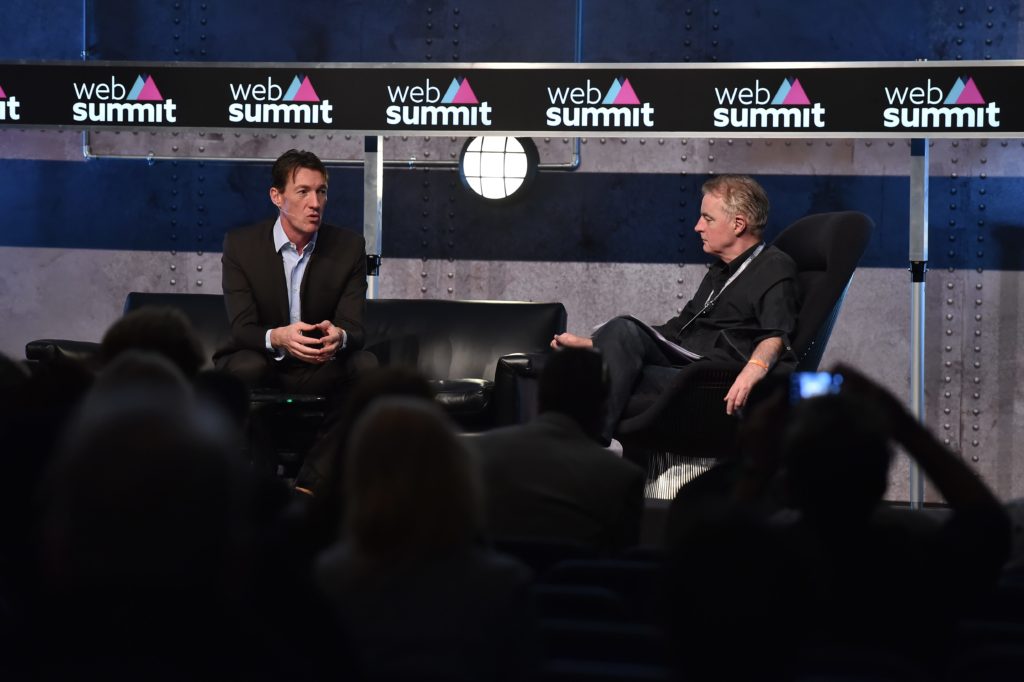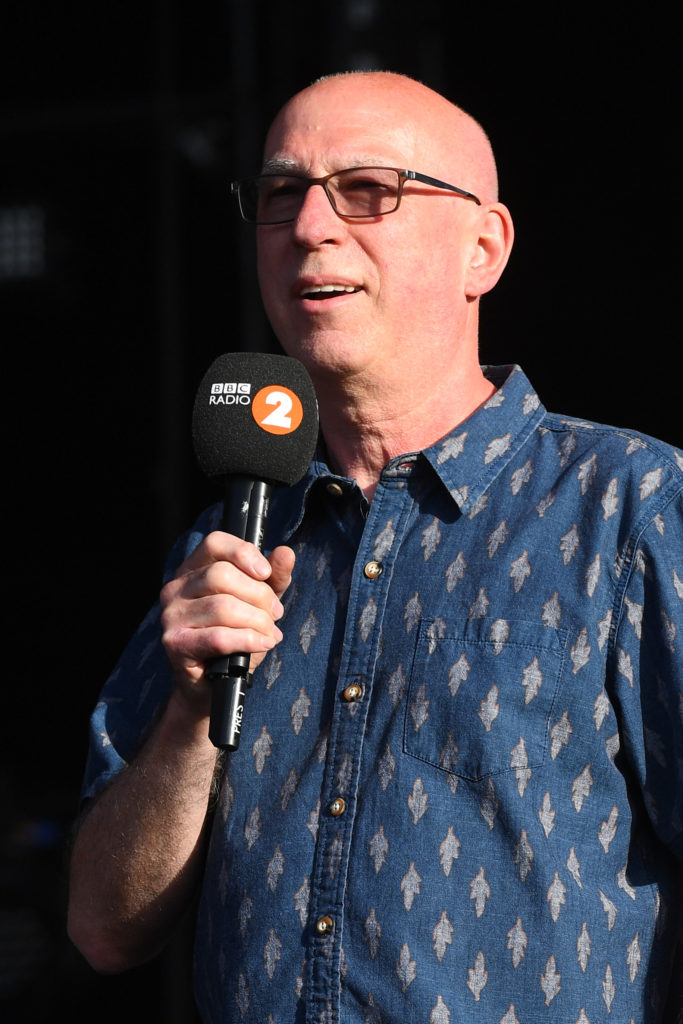Gerry Coyle examines the departure of Dave Fanning from 2FM and asks if it was simply a case of ‘the right time to go’ or a sign of something more pernicious
 Brian Message, left, partner, ATC Management, with Dave Fanning, broadcaster, RTÉ (Getty Images)
Brian Message, left, partner, ATC Management, with Dave Fanning, broadcaster, RTÉ (Getty Images)Disc jockeys are a bit like football players: despite the passing of the years, in our mind’s eye, they remain forever young. I don’t know what shocked me more: to hear that Dave Fanning, the voice of 2FM, had after 44 years decided to call it a day, or learning that the great man is now 67. It’s hard to believe that the broadcasting legend, whose dulcet tones were an ever-present feature of my formative years listening to popular music, is disappearing from the airwaves.
It's even harder to believe the spin that has accompanied his departure.
There was the predictable ‘Thanks for the service. We wish you luck in your new venture’ speech from Head of RTE 2FM, Dan Healy. Hailing Fanning as a ‘cultural hero’, Healy described the DJ’s move to digital channel RTE Gold as ‘no surprise’ and assured us Fanning’s ‘unique voice and personality will continue to engage audiences on new platforms‘, and that he, of course, ‘remains an important part of RTE’ (And there was us thinking our beloved MC was about to fade into obscurity.)
Lest anyone still had their suspicions, Dave himself chipped in, enthusing about swopping the prestige and profile of 2FM for presenting his new show on Gold (apparently, it’s a channel ‘dedicated to the classic hits of the past decades’). He told his followers on Instagram: ‘I’ve been thinkin’ about this for the past few years and have decided to step back from my weekend show on 2FM to spread the word of Fanning on the digital empire’.
Seriously? Ah, c’mon lads, please.
Are we meant to believe that this is the same Dave Fanning who, three months previously, was telling The Irish Sunday Mirror : ‘Am I ready to retire? F… , no way. In this day an age, a 60-year-old now is really like a 45-year-old from years ago. I’ll keep going ….right now I couldn’t be healthier.’
So, why the change of heart? Did the veteran DJ receive the dreaded tap on the shoulder from on high to tell him he’s been recalibrating his biological clock in the wrong direction; that all that malarkey about 60 being the new 45 is just so pre-pandemic, and, at 67, he’s considered to be past it?
Perhaps the real clue to the rationale behind Fanning’s ‘decision’ lies not in where he is moving to, so much as, who is replacing him.
Emma Power and Roz Purcell (a former Miss Universe Ireland and ‘influencer’ with a following of 545k on Instagram), who take over his weekend show, bring a distinctly different profile to the role. Between them they also have a combined age which is less than their predecessor’s 67 years.
Regardless of the female duo’s talents or their on-trend credentials, it is hard not to conclude that Fanning has been a victim of what fellow broadcaster Eamonn Holmes recently described as the media industry’s ‘obsession with youth’ – a conclusion which was reinforced by Fanning’s own admission, last week, that he was ‘too old for 2FM’.
Indeed, the Dubliner’s displacement – which, in reality, is what it is – bears all the hallmarks of the ageist purges which have occurred in the UK media industry (especially within the BBC) over the course of the last year. Often claims of ‘moving on to pastures new’ – à la Fanning - have been followed by accusations of age bias from those ousted.
 BBC Radio 2's Ken Bruce (Getty Images)
BBC Radio 2's Ken Bruce (Getty Images)In the last six months, at BBC Radio 2, we have witnessed a steady procession of Baby boomers heading for the exit door. Old stalwarts Steve Wright (67), Paul O’Grady (67), Ken Bruce (71) and Vanessa Feltz (60} have all been forced to step down, leading the latter to claim: ‘Once you get over a certain age, your days are numbered. You’re not valued in any way.’
In January, a major shake-up of the Corporation’s front-of-house news team similarly resulted in a number of veteran presenters being axed, with long-serving newsreaders David Eades (54), Joanna Gosling (52), and Tim Wilcox (59) reportedly told that they would have to ‘prove’ their skills in ‘a screen test’ before reapplying for their jobs, despite having a combined total of 73 years of experience between them.
For those of us in the 50-plus generation, already ill at ease in a post-pandemic world characterised by perpetual change, such culls make uncomfortable viewing. Witnessing the figures who have provided the audio and visual backdrop to your youthful years being systematically removed is like having a part of your past eroded.
But this is not just simply about a love of nostalgia. Given that Its numerical representation in the media is widely recognised as an indication of the relative standing of any group in society, whether in respect to race, gender or age, it is no surprise to find the recent upsurge in ageist zealotry in the industry mirrored in the wider workplace. Nor is it surprise to see a feeling of being marginalised prevalent among those who share an age demographic with its victims.
A survey of British workers last year found that 93% believe ageism in the workplace is a regular occurrence. The findings follow a 74% rise in complaints of age discrimination made to employment tribunals in the UK in the period 2019-21.
It’s a similar picture in post-pandemic Ireland, where research recently revealed that 90% of workers believe being over 55 has increasingly become an issue when searching for employment.
It would seem that a generation, once in the vanguard of celebrity culture, has suddenly found itself aged and unvalued. 50 has become the new 60. Even our icons are no longer bestowed with the gift of eternal youth. OMG: maybe the time has come to start listening to ‘the word of Fanning on the digital empire’.

